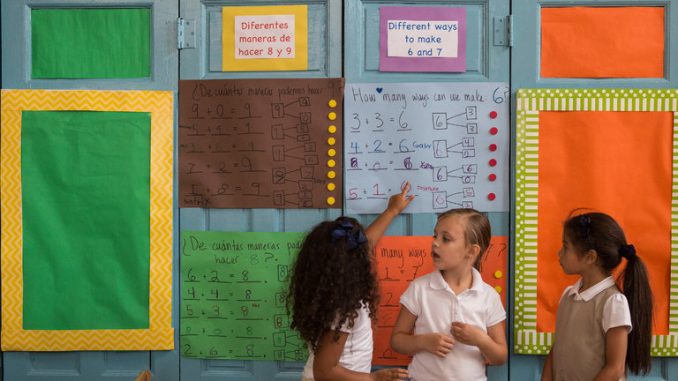
By Dr. Perri Klass
True bilingualism is a relatively rare and a beautiful thing, and by “true,” I mean speaking two languages with the proficiency of a native — something most of us will only dream of as we struggle with learning languages in school and beyond.
Highly competent bilingualism is probably more common in other countries, since many children growing up in the United States aren’t exposed to other languages. But the steps along the road toward bilingualism can help a child’s overall facility with language. And early exposure to more than one language can confer certain advantages, especially in terms of facility with forming the sounds in that language.
But parents should not assume that young children’s natural language abilities will lead to true grown-up language skills without a good deal of effort. Erika Hoff, a developmental psychologist who is a professor at Florida Atlantic University and the lead author of a 2015 review article on bilingual development, said: “For everybody trying to raise a bilingual child, whatever your background and reason, it’s very important to realize that acquiring a language requires massive exposure to that language.”
Read more of this article entitled “Raising a Truly Bilingual Child” by Dr. Perri Klass on the nytimes.com